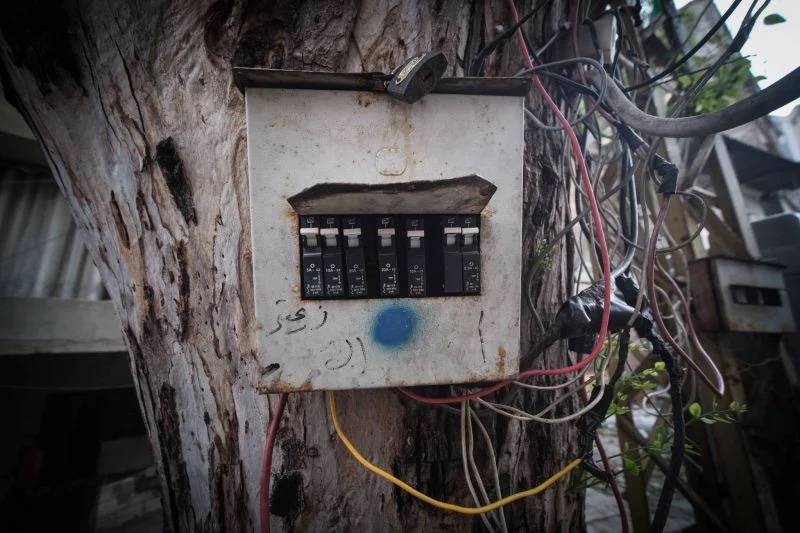
A fuse box. (Credit: João Sousa/L'Orient Today)
Want to get the Morning Brief by email? Click here to sign up.
Caretaker Energy Minister Walid Fayad announced that state-owned Électricité du Liban could double its power production by mid-February if the government commits to “eliminate any [power] waste" by tracking down illegal connections to EDL's cables. Fayad added that, after EDL director Kamal Hayek obtains guarantees of the government’s support, the state power provider can pursue efforts to reach 500 megawatts (MW) of power output — in line with the second phase of a multistep plan aiming to ultimately produce 1500 MW, or half Lebanon’s pre-crisis demand. In January, the government approved more than $100 million in Treasury advances to finance state electricity production after a fuel shortage forced shutdowns of Lebanon’s two largest power plants. Last month, Fayad said an increase to longstanding EDL tariffs, expected to come into effect by the end of February, could not be implemented without increasing EDL’s production first. However, the new electricity tariffs are among the necessary reforms stipulated by the World Bank to allow for Lebanon to receive Jordanian electricity and Egyptian natural gas via Syria.
Private school teachers held a one-day warning strike yesterday, urging management to implement previously agreed-on compensation reforms and calling on the government to “stop procrastinating and set the date of the meeting on education.” “If our outcry is not heard, we will consider escalation measures,” Nehme Mahfoud, president of the private school teachers’ union, told L’Orient Today. “Only the state can provide a solution,” Sister Bassima Khoury, director of Antonine Sisters School in Roumieh, explained a lack of funds to meet teachers’ demands as “more than 70 percent of tuition fees” remained unpaid well into the school year. Caretaker Education Minister Abbas Halabi called for a meeting chaired by caretaker premier Najib Mikati and involving all the components of the private education sector. Meanwhile, public school teachers have been on strike since Jan. 10 to demand revised compensation. Mikati said earlier this week that he would call for a government meeting by early next week at the latest to discuss the education sector.
The lira lost the modest gains of the previous few days, trading around LL64,500 to the dollar as of this morning. The drop accompanied the first day of implementation of the new official exchange rate: LL15,000 to the dollar — a 90% devaluation from the longstanding LL1,500 rate. This change is expected to shrink commercial banks’ lira assets, which they will have five years to recover, Banque du Liban governor Riad Salameh said. Fuel prices rose accordingly, with 95-octane gasoline, 98-octane gasoline and diesel all increasing by at least LL78,000.
On Tuesday, the Finance Ministry announced the implementation of quarterly collected income taxes for non-residents who nonetheless pay Lebanese taxes, as well as for self-employed individuals and small businesses. Nadim Daher, treasurer of the Lebanese Business Leaders Association (RDCL), considered the measure an attempt to force companies not registered with tax authorities to comply with regular tax structures. However, due to collections being “too easy to get around,” the new levy scheme “may be ineffective to increase the number of taxpayers,” according to Daher.
The United Nations Human Settlements Program (UN-Habitat) and the Japanese government announced a partnership to fund “urban farming solutions, clean water, and renewable energy solutions” in Shalfeh, Tripoli. The $900,000 project aims “to address food insecurity, enhance skills, provide livelihood opportunities and engage those often left behind” in a neighborhood of “11,000 inhabitants who live in substandard housing conditions, lacking basic services such as water, electricity, waste management and access to livelihood opportunities.”
In case you missed it, here’s our must-read piece from yesterday: “Ghassan Oueidat, shielding the establishment”
Compiled by Abbas Mahfouz